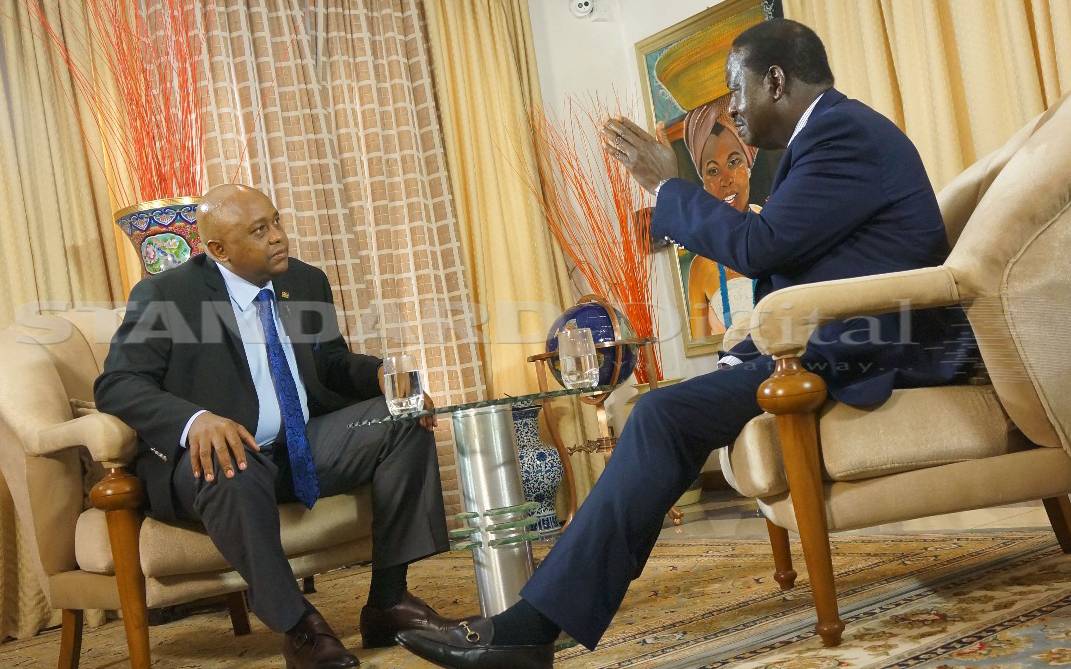
In an interview on the country’s hot political issues, ranging from the emotive 2022 succession politics, alleged scheme by dynasties to block Deputy President William Ruto’s presidential bid, push to amend the Constitution and renewed war on corruption, African Union’s High Representative for Infrastructure Development Raila Odinga opened up to KTN’s “Point Blank” host Tony Gachoka (TG). Here are excerpts.
TG: Your political opponents have said the constitutional reforms being fronted by the Building Bridges Initiative is a way of stopping others from assuming office, and securing a seat for you?